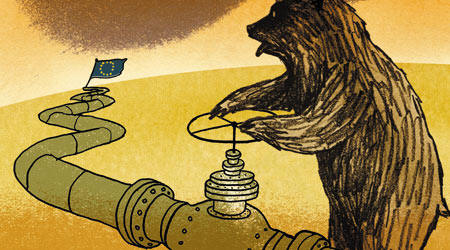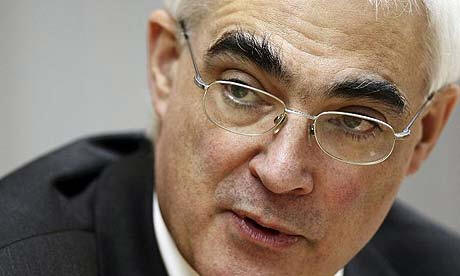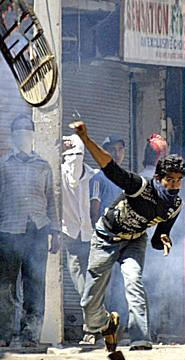|
PAPUA NEW GUINEA FORESTRY SCANDAL UNDER
INVESTIGATION
MELBOURNE, Australia (Radio
Australia, Aug. 6, 2008) – Papua New Guinea's
Ombudsman Commission says it will investigate
allegations of millions of dollars in secret
deals between two government ministers and Asian
logging companies. PNG's Ombudsman has confirmed
it has received documents from the Post Courier
newspaper. The newspaper says it has handed over
information that it based its story on about the
discovery of US$40 million in an account in
Singapore. It reported the money was in a
government minister's off-shore bank account.
It's alleged the money was earned from a two per
cent kickback from log exports. PNG's Ombudsman
says it will study the documents before making
its own investigations. PNG's Deputy Prime
Minister Doctor Puka Temu has welcomed the move.
He says the Ombudsman and police will carry out
a proper investigation |
|
SUMMER READING John Francis
Kinsella's novel, Borneo Pulp,
tells the story of how a group of
industrialists planned the destruction
of Borneo's rain forests in their race
for profits. |

|
In the last decades of the
twentieth century the destruction of the
Indonesian rainforest accelerated with the
arrival of large multinational forestry industry
companies. The promoters are Europeans,
Indonesians and Taiwanese, backed by
international banks who vie for a share in the
rich rewards, in total disregard for the
destruction that will be wreaked on the habitat
of the indigenous peoples and the terrible
effect that the mill would have on the natural
environment. John Ennis arrives in Jakarta, on
behalf of the consortium formed to promote the
project, where he discovers an unexpectedly new
world. Assigned to head the development by
Antoine Brodzski the promoter and a Scandinavian
multinational, he is plunged into a conflict of
financial and political interests in Suharto’s
Indonesia, where dollars are more important than
the obliteration of huge swaths of Borneo’s
primary forests and its unique wildlife and
ecosystem. From the boardrooms of Europe to the
steaming forests and capitals of South East
Asia, John Ennis is confronted with the dilemma
of investment and employment, the motors of
development for 200 million Indonesians, and the
unaffordable cost that future generations will
have to pay. |
|
|
|
|
|
Lenders face huge hit on
mortgages fraudulently
obtained by crime gangs.
|
Britain’s mortgage
lenders may be
sitting on hundreds
of millions of
pounds of worthless
loans fraudulently
obtained by
criminals to support
drug manufacturing,
illegal immigration
and
money-laundering.
Bradford & Bingley,
the buy-to-let
mortgage lender,
admitted yesterday
that it had been
forced to take an
£18 million
impairment charge in
the half year to
June 30 to cover
borrowing by
criminal gangs and
other fraudsters.
The sum represents
an increase on a £15
million charge taken
in June. B&B’s
losses may be only
the tip of the
iceberg. The
Association of Chief
Police Officers has
estimated the scale
of mortgage fraud in
the UK at £700
million a year, but
many believe this to
be conservative.
Meanwhile The
Times reports: 'Bradford
& Bingley gave us a
glimpse on Friday of
how dicey things
were early in July.
The bank came
uncomfortably close
to becoming a second
Northern Rock. It
admits that
customers were
rushing to pull out
their savings as the
bank repeatedly
failed to nail down
rescue financing.'
“It was a scary
time, not just for
us but for the whole
world,” Rod Kent,
the chairman, told
me. The bank
suffered “hundreds
of millions of
pounds” in net
withdrawals as
rescue deal after
rescue deal
crumbled.
|
|
|
 |
|
|
EU-Russia cooperation on the world stage will
have implications for energy policy. No matter
what the EU may desire, energy relations will
never be ‘solved’ through purely legal and
commercial means, but will always take place
against a larger political backdrop. In other
words, whether or not one should be worried by
the EU’s current and future energy dependence on
Russia, it is undoubtedly true that the current
atmosphere of mistrust does not arise solely
from energy anxieties but reflects a more
fundamental discrepancy between the EU’s and
Russia’s political leanings and outlooks - by
Quentin Perret |
|
|
 |
| Marauding
elephants, aggressive sea lions, snap-happy
crocodiles... As animal attacks on humans reach
frightening levels, scientists are beginning to
understand exactly what the beasts are thinking.
And it's not good. One of the world's
leading specialists in animal behavior believes
that a critical point has been crossed and
animals are beginning to snap back. After
centuries of being eaten, evicted, subjected to
vivisection, killed for fun, worn as hats and
made to ride bicycles in circuses, something is
causing them to turn on us. And it is being
taken seriously enough by scientists that it has
earned its own acronym: HAC - 'human-animal
conflict'. It's happening everywhere.
Authorities in America and Canada are alarmed at
the increase in attacks on humans by mountain
lions, cougars, foxes and wolves. Romania and
Colombia have seen a rise in bear maulings. In
Mexico, in just the past few months, there's
been a spate of deadly shark attacks with The LA
Times reporting that, 'the worldwide rate in
recent years is double the average of the
previous 50'. |
|
|
|
|
BRITAIN FACING WORST
ECONOMIC CRISIS SINCE
WWII |
 |
|
Britain is facing
"arguably the worst"
economic downturn in
60 years which will
be "more profound
and long-lasting"
than people had
expected, Alistair
Darling, the
chancellor, tells
the Guardian today.
In the government's
gravest assessment
of the economy,
which follows a
warning from a Bank
of England
policymaker that 2
million people could
be out of work by
Christmas, Darling
admits he had no
idea how serious the
credit crunch would
become. His blunt
remarks lay bare the
unease in the
highest ranks of the
cabinet that the
downturn is making
it all but
impossible for
Gordon Brown to
recover momentum
after a series of
setbacks. His
language is much
starker than the
tone adopted by the
prime minister, who
aims to revive his
premiership this
autumn by explaining
how he will help
struggling families
through the
downturn. The
chancellor, who says
that Labour faces
its toughest
challenge in a
generation, admits
that Brown and the
cabinet are partly
to blame for
Labour's woes
because they have
"patently" failed to
explain the party's
central mission to
the country, leaving
voters "pissed off".
In a candid
interview in today's
Guardian Weekend
magazine, Darling
warns that the
economic times faced
by Britain and the
rest of the world
"are arguably the
worst they've been
in 60 years". To
deepen the sense of
gloom, he adds: "And
I think it's going
to be more profound
and long-lasting
than people
thought." |
|
John McCain Names
Sarah Palin As His
Running Mate |
|
|
|
|
 |
| Francis Bacon has long
been acknowledged as one of the greatest
painters of the 20th century. Now he’s also the
priciest. This May, Roman Abramovich bought
Francis Bacon’s Triptych, 1976, at
Sotheby’s in New York for $86.3 million. It’s a
record for a contemporary work sold at auction.
Behind the rocketing prices lurks a character of
extreme passions and appetites, as well as
intense dedication, who lived amid a colourfully
bohemian coterie. Born in Dublin in 1909, from
the 1930s until his death in 1992 Bacon lived
and worked in South Kensington and drank
regularly (and often copiously) at the Colony
Rooms, a Soho members’ club, with his friends
John Deakin, Lucien Freud, Frank Auerbach,
Henrietta Moraes and countless hangers-on. “He
was great company. His manners were impeccable,
almost mandarin, but quite the opposite of
course when he was drunk. He used to go to the
Colony Rooms after lunch and continue drinking.
Once he confronted a Scotsman in a kilt who’d
wandered in there not knowing where he was, with
the immortal line ‘We’re all queer in here,
dear.’ He drank and drank and he rather liked
the hangover. He would say, ‘It strips your mind
bare. The pain empties your mind of any boring
details; it leaves no room for anything else.’
He could get bored very quickly and he wouldn’t
mind showing it. Sometimes he would just leave,
saying he had an asthma attack coming on. He
always needed to know that he could escape. He
once said he would always be able to escape,
even from Hell.” |
|
|
Developers in
Dubai are taking
a warning about
rampant
speculative
activity across
the Emirates'
property market
so seriously
that there are
moves to
discourage and
even prevent
selling on the
secondary
market. Several
analysts have
warned that high
speed
speculation in
the market will
ultimately lead
to boom and bust
as prices are
being inflated
by short-term
buyers who are
selling on their
off-plan
properties even
before the first
installment is
due with the
sole intention
of making a
quick
profit. Banking
giant Standard
Chartered said
the Dubai
government
should take
immediate action
to stop the
practice after
Colliers
International
reported that
property prices
in Dubai rose
42%
in the first
three months of
2008, well
beyond Standard
Chartered's
forecast of 15%
for the whole of
2008. |
|
|

| Manmohan Singh, the Indian Prime
Minister, today held emergency talks
with opposition leaders in a bid to calm
some of the worst Hindu-Muslim clashes
seen in Kashmir in two decades. Tensions have been simmering in the
Himalayan region since June, when the
state government rescinded a decision to
gift about 40 acres of forest land to
Amarnath, a Hindu cave shrine that hosts
a revered stalagmite to build facilities
for pilgrims. The move, prompted by violent
demonstrations from Kashmir’s Muslim
majority, triggered furious
counter-protests from Hindus. In the riots, and running battles
with police that followed, at least nine
have been killed and hundreds injured.
|
|
|
|
|